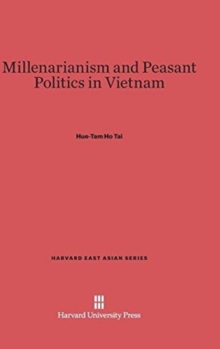
China’s Republican Revolution : The Case of Kwangtung, 1895–1913 Hardback
by Edward Rhoads
Part of the Harvard East Asian Series series
Hardback
Description
Imperialism, pernicious as it was in most respects, served as the prime catalyst for social change in China throughout the turbulent period from 1895 to 1913.
Starting with this premise, Edward Rhoads traces the social, political, and economic history of the republican revolution.
In his view, after the Boxer uprising, the Manchu court, usually called supine and reactionary, instituted a program of reform that was a serious, comprehensive, and often successful attempt at radical social transformation.
It failed, but it politicized the Chinese people to an unprecedented degree—and it marks the entrance of China into the modern era.
The post-Boxer reforms attracted many revolutionaries and defused a serious revolutionary threat.
Contrary to traditional accounts, Sun Yat-sen and his Revolutionary Alliance did not move easily from success to success.
On the eve of the 1911 revolution, in fact, the movement was disorganized and demoralized.
Its ultimate victory came less from its own efforts than from the failure of the incumbent rulers to win the support of the nonrevolutionary elite.
Information
-
Available to Order - This title is available to order, with delivery expected within 2 weeks
- Format:Hardback
- Pages:392 pages
- Publisher:Harvard University Press
- Publication Date:01/01/1975
- Category:
- ISBN:9780674119802
Information
-
Available to Order - This title is available to order, with delivery expected within 2 weeks
- Format:Hardback
- Pages:392 pages
- Publisher:Harvard University Press
- Publication Date:01/01/1975
- Category:
- ISBN:9780674119802










